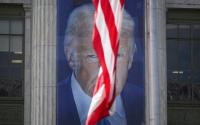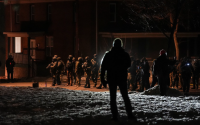Dangers of journalism
31 July 2004Jeff Lovitt
When a journalist attempts to follow the trail of power, political and business interests are prone to make life very uncomfortable, often at the cost of life itself. It is still not clear who orchestrated the murder on July 9 of Paul Klebnikov, editor of Forbes magazine's Russian edition, but it is likely that powerful business interests had a hand in his death.Russia ranks alongside Colombia and the Philippines among the most dangerous countries for journalists investigating corruption.According to the Committee to Protect Journalists, 36 journalists were killed because of their work in 2003. Among the 17 killed outside war zones, seven are believed to have been murdered because of their reporting on corruption.In Bangladesh, Manik Chandra Saha, who frequently reported on crime and political corruption for the New Age newspaper and the BBC Bengali service, was killed in a bomb attack on Jan. 15.Carlos Alberto Cardoso, an investigative journalist in Mozambique, was assassinated in November 2000 while investigating the largest banking fraud in the country's history. Georgy Gongadze, a Ukrainian journalist who wrote about the corruption of the Ukrainian government on his Internet news service, was decapitated in autumn 2000.One of the most important aspects of journalism training must be safety at work, which means, where resources permit, working in teams and notifying colleagues of each reporter's movements when investigating a case of corruption. The Philippines Center for Investigative Journalism played a major role in exposing the corruption of President Joseph Estrada, and the teamwork led to his impeachment and fall from power.But the media's success in fighting corruption depends also on factors outside the media, including press freedom laws; fair, strong and independent judges; courageous public prosecutors; professional and honest police and public officials, and an environment that enables the media to serve as an effective public watchdog.Many media owners also have other interests, which often involve the government. In many countries - not least in Italy - owners of media are so close to the ruling political party that it is difficult to know whether it is the government or the owner who takes the decisions. It is vital that governments respect and enforce the law equitably, and provide public information as transparently as possible. A clampdown on conflicts of interest is essential for the media to function impartially.The media's role as a watchdog is key to exposing corrupt politicians and public officials, whether by showing that their lifestyles don't match their declared incomes or by scrutinizing the flow of public monies.In countries where corruption is high, media owners should be engaged in a discussion of issues such as journalism pay scales, the independence of editors and the need for adequate newsroom budgets to support investigative reporting.The media must also clean its own house. Taking cash for editorial content and other unethical media practices are unfortunately prevalent around the world, particularly in southern and eastern Europe and in Latin America, according to a survey in 54 countries by the International Public Relations Association. Nearly two-thirds of respondents in eastern Europe believe that for journalists to accept money for editorial content is common. In southern Europe, Africa and the Middle East, two in five respondents believe that editorial content is generally influenced by bribes. In Latin America, 2 out of 5 respondents said bribes are often accepted by editors and journalists for not running a story.On Monday, the IPRA and other international public relations bodies joined forces with the International Federation of Journalists, Transparency International and the International Press Institute to launch a Charter of Media Transparency, setting out clear principles to stamp out bribery in public relations and the media.According to Aidan White, general secretary of the International Federation of Journalists, "courageous reporters risk life and limb every day to defend press freedom and human rights. We cannot stand by while bribery mocks those sacrifices."The media is a vital watchdog to hold those in power to account, not least because reporting on corruption requires journalists to follow the trail of power. The new Charter for Media Transparency, which calls for written policies on gift-taking and on the clear separation of editorial and advertising content, should be supported by journalists, publishers and media owners in order to strengthen the credibility and impartiality of the media.Jeff Lovitt is director of communications for Transparency International.






